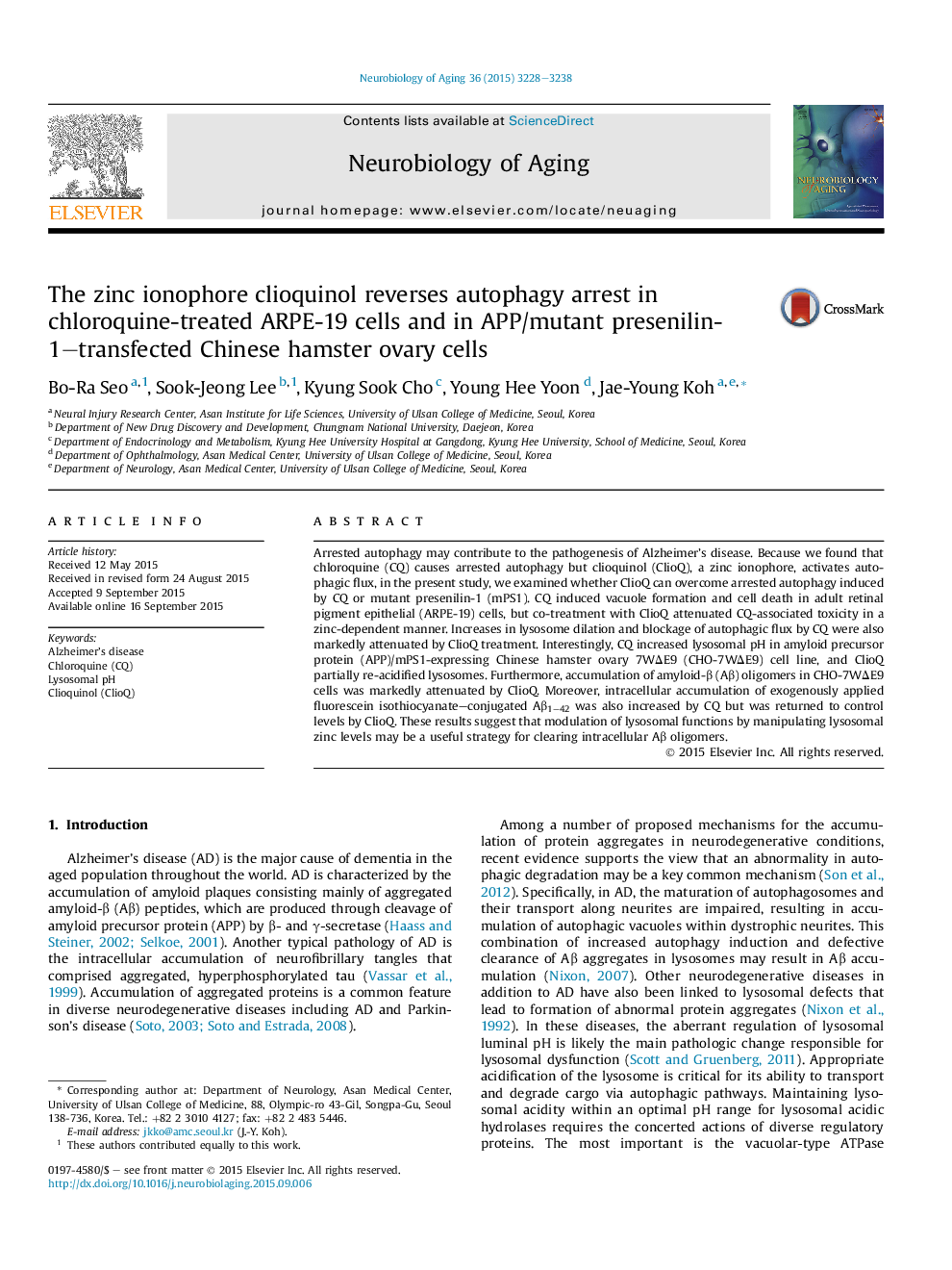| Article ID | Journal | Published Year | Pages | File Type |
|---|---|---|---|---|
| 6803764 | Neurobiology of Aging | 2015 | 11 Pages |
Abstract
Arrested autophagy may contribute to the pathogenesis of Alzheimer's disease. Because we found that chloroquine (CQ) causes arrested autophagy but clioquinol (ClioQ), a zinc ionophore, activates autophagic flux, in the present study, we examined whether ClioQ can overcome arrested autophagy induced by CQ or mutant presenilin-1 (mPS1). CQ induced vacuole formation and cell death in adult retinal pigment epithelial (ARPE-19) cells, but co-treatment with ClioQ attenuated CQ-associated toxicity in a zinc-dependent manner. Increases in lysosome dilation and blockage of autophagic flux by CQ were also markedly attenuated by ClioQ treatment. Interestingly, CQ increased lysosomal pH in amyloid precursor protein (APP)/mPS1-expressing Chinese hamster ovary 7WÎE9 (CHO-7WÎE9) cell line, and ClioQ partially re-acidified lysosomes. Furthermore, accumulation of amyloid-β (Aβ) oligomers in CHO-7WÎE9 cells was markedly attenuated by ClioQ. Moreover, intracellular accumulation of exogenously applied fluorescein isothiocyanate-conjugated Aβ1-42 was also increased by CQ but was returned to control levels by ClioQ. These results suggest that modulation of lysosomal functions by manipulating lysosomal zinc levels may be a useful strategy for clearing intracellular Aβ oligomers.
Related Topics
Life Sciences
Biochemistry, Genetics and Molecular Biology
Ageing
Authors
Bo-Ra Seo, Sook-Jeong Lee, Kyung Sook Cho, Young Hee Yoon, Jae-Young Koh,
